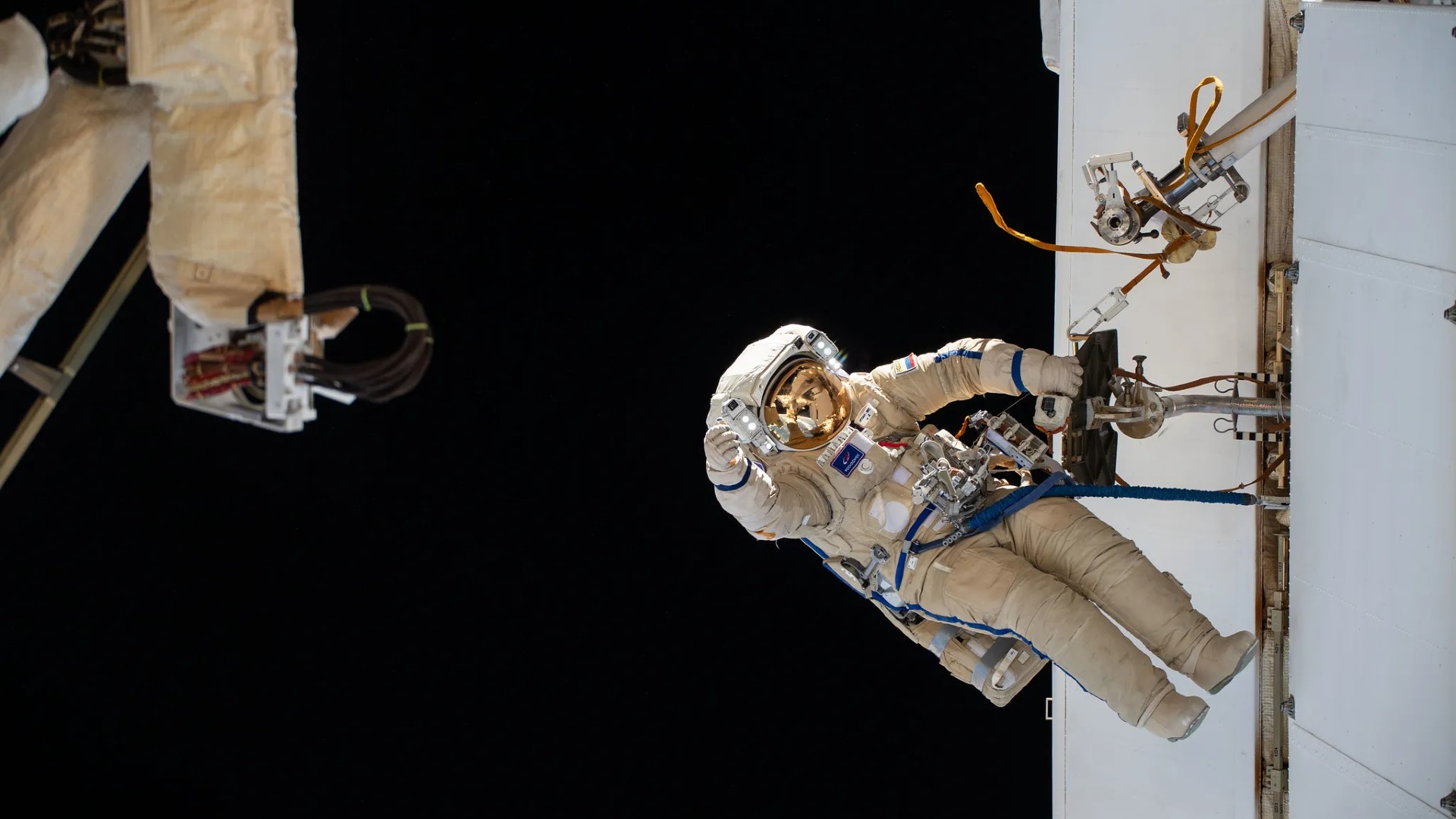Shuttle Discovery May Launch Even if Sensor Glitch Recurs
Breaking space news, the latest updates on rocket launches, skywatching events and more!
You are now subscribed
Your newsletter sign-up was successful
Want to add more newsletters?

Delivered daily
Daily Newsletter
Breaking space news, the latest updates on rocket launches, skywatching events and more!

Once a month
Watch This Space
Sign up to our monthly entertainment newsletter to keep up with all our coverage of the latest sci-fi and space movies, tv shows, games and books.

Once a week
Night Sky This Week
Discover this week's must-see night sky events, moon phases, and stunning astrophotos. Sign up for our skywatching newsletter and explore the universe with us!

Twice a month
Strange New Words
Space.com's Sci-Fi Reader's Club. Read a sci-fi short story every month and join a virtual community of fellow science fiction fans!
CAPECANAVERAL, Fla. - NASA's space shuttle Discovery is once again ready for launcheven if a still unexplained fuel sensor glitch that scrubbed an attempted July13 space shot occurs again, mission managers said Sunday.
"I'm quitecomfortable with where we are," said NASA chief Michael Griffin during a pre-launchbriefing here at Kennedy Space Center (KSC) late Sunday. "What you want of NASAis that make the right technical decisions, that we do the right thing to theextent that we can figure that out, which is hard."
Engineersspent nearly two weeks poring over Discovery's engine cut-off (ECO) sensor systemafter one of four liquid hydrogen fuel sensors inside its external tank faileda standard countdown test on July 13. Their efforts yielded two potentialsuspects, a wiring grounding issue - since resolved - and potentialelectromagnetic interference, but the exact cause remains elusive. Undercurrent flight rules, all four hydrogen sensors - which perform as fuel gauges toensure the orbiter shuts its three main engines down before the external tank runs dry.
"We haveliterally run every check that we could think of," said Wayne Hale, NASA's deputyshuttle program manager, during the briefing. "We don't think the problem is inthe sensor itself...we have to go to cryogenic temperature to find out what'sgoing on next."
Shuttleofficials said Discovery and its STS-114 astronaut crew are primed for their scheduledJuly 26 launch at 10:39 a.m. EDT (1439 GMT), with no technical issues crimpingNASA's next launch attempt. But missionmanagers added that they would okay Discovery's launch even if a sensor failuresimilar to that which scrubbed initial July 13 attempt, as long as it lines upwith a very specific set of circumstances.
"We havenot changed the launch commit criteria," Hale said. "It is a deviation."
If launchcontrollers detect a failure in the No. 2 or the No. 4 hydrogen sensors, whosewiring has been switched to better isolate the fuel gauge problem, shuttleofficials are confident that they'll understand the phenomena enough to launch.But if an unforeseen glitch occurs in one of Discovery's four liquid oxygenfuel sensors, or the No. 1 or No. 3 hydrogen sensors, it could scrub the launchand even prevent the orbiter from lifting off before its flight window closeson July 31.
Breaking space news, the latest updates on rocket launches, skywatching events and more!
"It begins to look very remote that we'd be able to launch within this window in that situation, but it depends on what we see," Hale said.
Veteranastronaut Eileen Collins, commander of the STS-114 mission, told reportersFriday that she and her crew have paid close attention to the technical andmanagement meetings that convened to solve the ECO sensor glitch.
"It's beenvery important for us to do that and to really understand the problem," Collinssaid. "We have...a fantastic team of people working on this."
Earliertoday, engineers loaded the cryogenic reactants Discovery's three fuel cellswill use to generate power during the shuttle's 12-day mission.
NASA hasplanned to have at least four launch attempts for Discovery - July 26, July 27,July 29 and July 31 - before its flight window closes at the end of the month.The potential to extend the launch window by one or two days into August will not give launchcontrollers a fifth space shot opportunity, but could allow more leeway in howthey approach another attempted liftoff,NASA test director Jeff Spaulding said.
Discovery'sis set to be NASA's first shuttle flight since the loss of the Columbiaorbiter, which broke apart during reentry on Feb. 1, 2003 killing its astronautcrew. The STS-114 mission is designed to test out new orbiter inspection toolsand methods to increase shuttle flight safety.
Aside fromthe fuel sensor glitch, NASA is also keeping an eye to the weather, which showsa 40 percent chance of violating launch criteria for the upcoming space shot,shuttle weather officers said.
"If thingsgo our way, you'll see us launch our first shuttle in two and a half years,"Hale said.
- Fixing NASA: Complete Coverage of Space Shuttle Return to Flight

Tariq is the award-winning Editor-in-Chief of Space.com and joined the team in 2001. He covers human spaceflight, as well as skywatching and entertainment. He became Space.com's Editor-in-Chief in 2019. Before joining Space.com, Tariq was a staff reporter for The Los Angeles Times covering education and city beats in La Habra, Fullerton and Huntington Beach. He's a recipient of the 2022 Harry Kolcum Award for excellence in space reporting and the 2025 Space Pioneer Award from the National Space Society. He is an Eagle Scout and Space Camp alum with journalism degrees from the USC and NYU. You can find Tariq at Space.com and as the co-host to the This Week In Space podcast on the TWiT network. To see his latest project, you can follow Tariq on Twitter @tariqjmalik.
